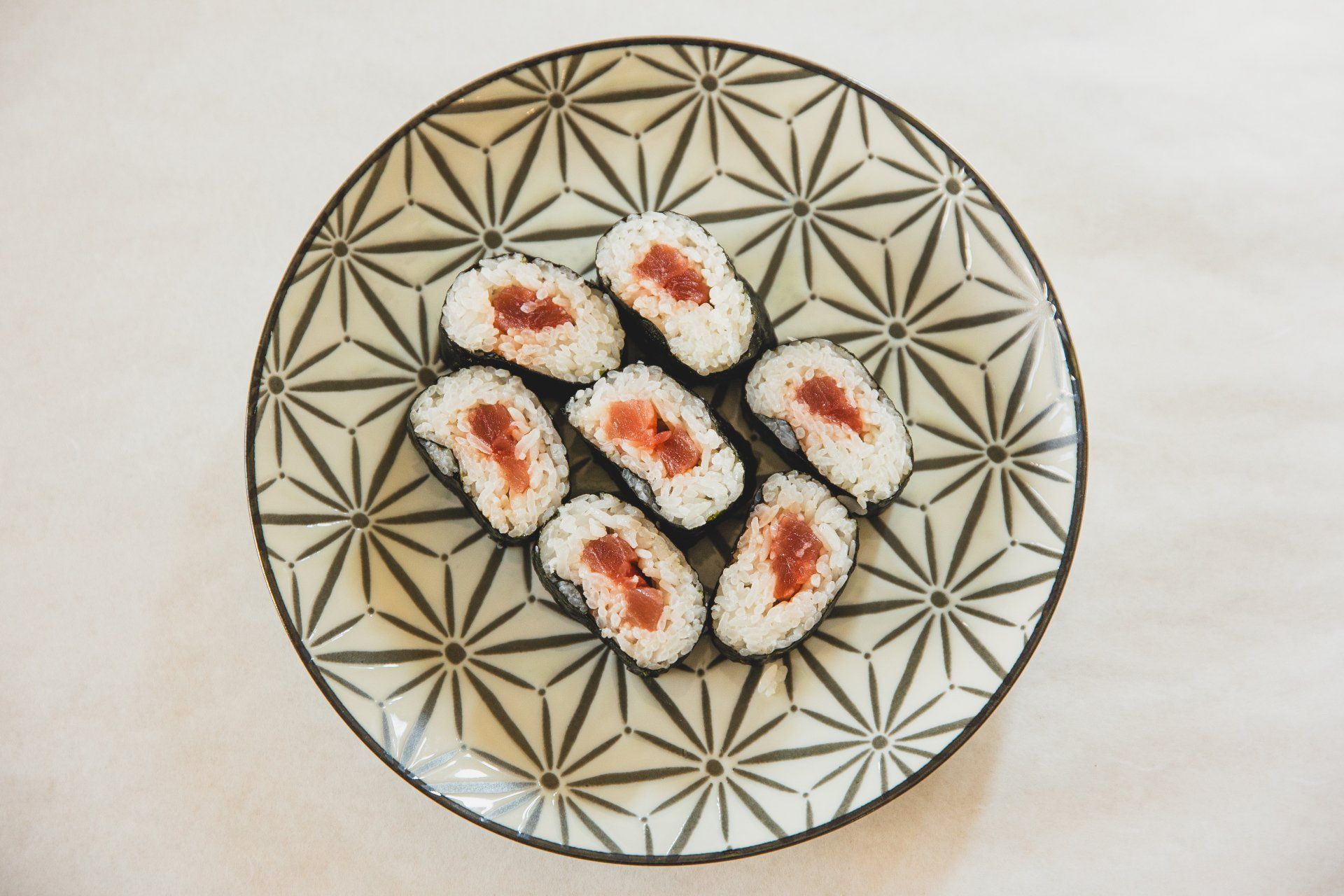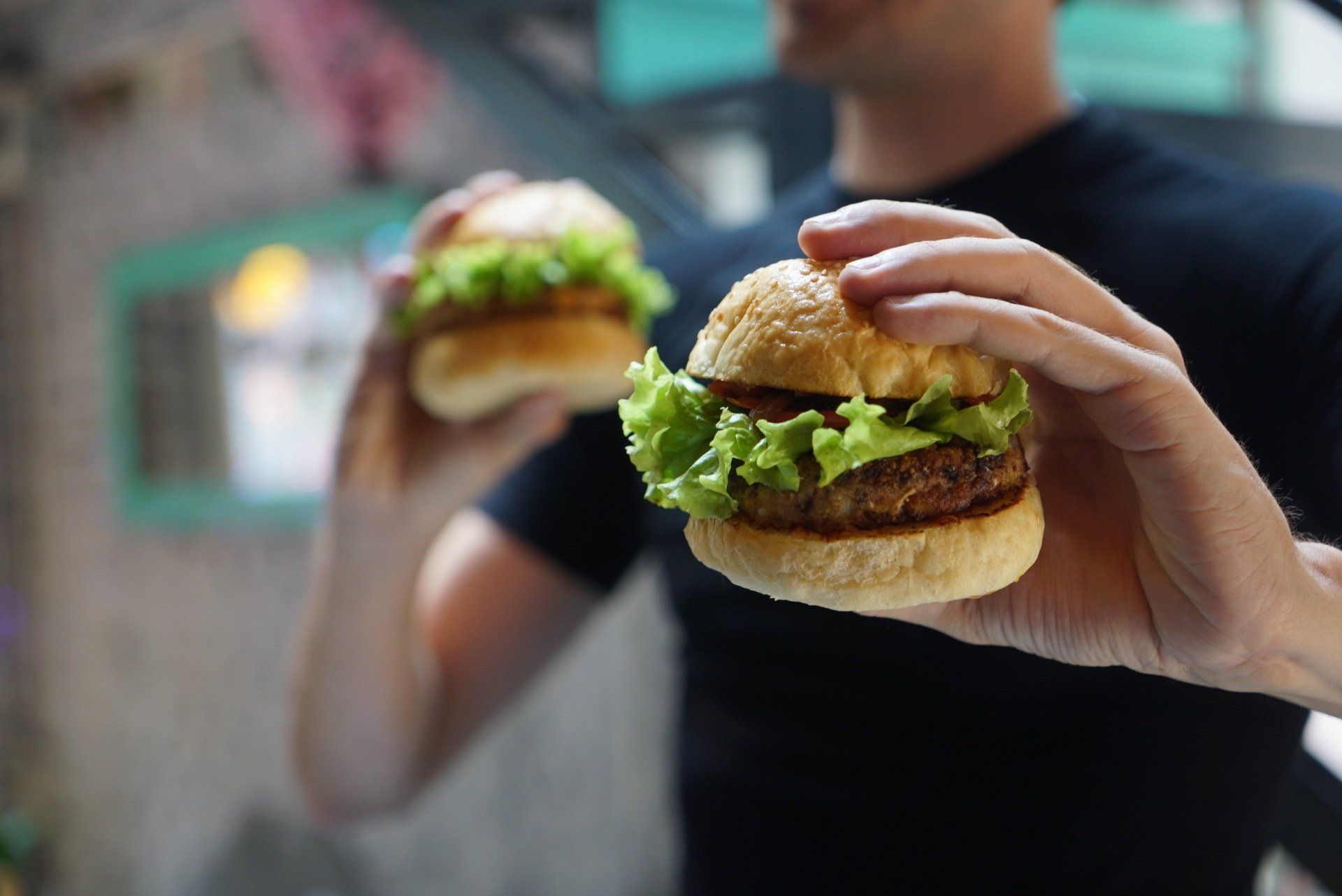Mindful Eating Class: Training Your Taste Buds
How can you use intuitive eating to lose weight? By training your taste buds to expect a high level of pleasure in the food you eat. Your mission, should you decide to accept it, is to become a pleasure junkie.
As a pleasure junkie you should question everything you put in your mouth and ask, “Does this send me into a Food Rapture?” If it doesn't, put it down. If it does, keep eating.
As a pleasure junkie you’ll become hostile to the adequate-tasting. You’ll be skeptical of foods that lead up to but not into the Rapture.
An Intuitive Eating How To
Committing yourself to the Rapture means questioning your standbys. You won’t change what you like but how those things are prepared. You’ll think things like,
“I love Whoppers but I’m sure there are better burgers out there.”
Then you’ll actively seek out better versions of it. You’ll visit say, the nearest gastropub, and indeed, you’ll find one that puts Burger King to shame.
You’ll think things like,
“I love McDonald’s french fries but I’m sure there are better fries out there.”
Then you’ll actively seek out one of the newer “fast-casual” restaurants popping up. You know, the ones with cult-like followings in your town. You’ll order their fries; they’ll send you into space like a moonshot and soon the McDonald’s fries will seem too earth-bound.
You’ll think things like,
“I love Chips Ahoy but I’m sure there are better-tasting cookies out there.” Then you’ll actively steer away from the packaged cookies aisle and head to a bakery and buy fresh baked cookies. Chips Ahoy may have made you stand at attention but the fresh baked cookies will make you fall off the chair.
Do you see a common thread here? You don’t become a pleasure junkie by continuing to eat what you’ve always eaten. You commit to finding better,
much better, versions of what you like to eat.
Conscious Eating Insight: Be A Pleasure Junkie
Once you become a pleasure junkie looking for the rapture you come to a startling conclusion: Junk food doesn’t cut it anymore. Oh, you still want burgers and fries, but you want them to send you to heaven and the only way to do that is to find healthier alternatives.
Wait, how is it healthier to replace a burger and fries with a burger and fries?
The ingredients. See, the gastropub burger tasted better because they used a premium cut of beef that wasn’t bloated with antibiotics. It was fresh, not frozen. It was leaner, contained less than half the saturated fat and half the salt.
Same with the fries. The ones from the “fast-casual” restaurant use better potatoes, avoid “bad” fat, and use fresher condiments.
Same with the cookies. The fresh-baked tasted better because they weren’t made with high fructose corn syrup, leavening, cornstarch, soy lecithin and other artificial flavors produced in chemistry labs.
By trading up choices you cut gram after gram of sugar, milligram after milligram of sodium and ounce after ounce of fat. You also add fiber, antioxidants, and other valuable nutrients.
Put Your Taste Buds In Rehab
Trading up puts your taste buds through rehab, training them away from the unhealthy toward the healthier. Soon they will recoil at unhealthy oils and unnatural chemicals. They’ll become more sensitive to sugar and salt, which means you’ll need less to feel full.
Raise Your Junk Food Standards
Now, how can we regularly ascend to the rapture? By becoming the bouncer at the door of the most hedonistic club in existence—your mouth.
With all those taste buds inside, your mouth is the pleasure dome, the portal to the rapture. As the bouncer behind the velvet rope, you’re in charge of what you let in and what you keep out. Like any good bouncer, you don’t take any crap from the posers. Nobody gets in without the promise of maximum pleasure. You scan the line for promising patrons, constantly on the lookout for what kind of deliciousness can explode inside the club.
You’ll find yourself saying things like, “You, the mediocre one with the fast food bib, step aside and let the fast-casual dude with the great fries through. You, the also-ran in the packaged goods costume, make way for the bakery chick with the dazzling chocolate chips.”
As all club bouncers, you will become enormously picky about what you let in. And that very pickiness is what will move you to eat healthier and healthier foods.
The Intuitive Eater's Toolbox
As the doorman to the pleasure dome you need a way to keep the undesirables out and sweep the worthy entrants in. For this, we turn to pioneering psychologist and his influential work on delayed gratification.
In the ’60’s and ’70’s American parents were spellbound by a series of famous experiments on children. French psychologist Walter Mischel devised a devilishly simple way to judge a preschooler’s self-discipline: Ask them to choose between eating one marshmallow now or waiting 15 minutes so they could eat two.
Mischel’s “Marshmallow Experiments” became a pop culture hit. News networks featured videotapes of children agonizing over the marshmallows and gleefully eating them later.
America obsessed over Mischel’s message: Your children’s success as an adult is dependent on their ability to delay gratification, an ability measured by the Marshmallow Experiments. Hoping for an early glimpse of their children’s future, anxious parents started a new craze—conducting “Marshmallow Tests” at home.
Soon, dieting experts hopped on the bandwagon and used the Marshmallow Experiments as a model for weight loss: Delay the gratification of that fattening food for a beach-ready body! Give up buns of cinnamon for buns of steel!
Like so much of diet culture, this ethos fell flat on its face. Why? Because you can’t steal an innovation created in one industry, apply it to another and expect it to work without making significant adaptations.
For example, BMW didn’t just rip out the console of a video game and staple it onto its drive system. It took the essence of the video console and adapted it to the needs of people who drive cars.
Dieting experts did no such thing with Mischel’s work. There were no tweaks, no adaptations to his innovation. As you’re about to see in our next blog post (or in our
intuitive eating class), they missed an exceptional opportunity to make delayed gratification work for weight loss.
Academic Studies Used To Inform Our Take On Weight Loss Without Dieting
McKee, H. C., & Ntoumanis, N. (2014). Developing self-regulation for dietary temptations: intervention effects on physical, self-regulatory and psychological outcomes. Journal of behavioral medicine, 37(6), 1075–1081. https://doi.org/10.1007/s10865-014-9557-6
Quote: The self-regulation training group was trained to use six self-regulatory skills: Delayed gratification, thought control, goal setting, self-monitoring, mindfulness, and coping.
Results indicate that self-regulatory skills training might be as effective as dietary and physical activity advice in terms of weight loss and related outcomes.
Annesi, J. J., & Gorjala, S. (2010). Relations of self-regulation and self-efficacy for exercise and eating and BMI change: A field investigation.
BioPsychoSocial Medicine,
4(1), 1-6. https://doi.org/10.1186/1751-0759-4-10
Quote: Findings suggest that training in self-regulation for exercise and eating may benefit self-efficacy and weight-loss outcomes.
Will Crescioni, A., Ehrlinger, J., Alquist, J. L., Conlon, K. E., Baumeister, R. F., Schatschneider, C., & Dutton, G. R. (2011). High trait self-control predicts positive health behaviors and success in weight loss.
Journal of health psychology,
16(5), 750–759. https://doi.org/10.1177/1359105310390247
Quote: Independent of baseline differences, individuals high in dispositional self-control ate fewer calories overall and fewer calories from fat, burned marginally more calories through exercise, and lost more weight during the program than did those lower in self-control. These data suggest that trait self-control is, indeed, an important predictor of health behaviors.










